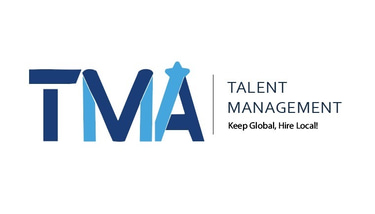Employee Benefits in Mexico
Our EOR Services offers comprehensive Mandatory & Optional Employee Benefits for your Workforce Success.
We tailored to fit your existing employee compensation system to the benefits that are governed by the Federal Labor Law (Ley Federal del Trabajo) and related regulations, ensuring workers receive mandatory and optional benefits that comply with labor, tax, and social security requirements.
Below is a comprehensive list of the legally allowed benefits in Mexico:
MANDATORY BENEFITS
Mandatory Benefits in Mexico
Under Mexico’s Federal Labor Law (Ley Federal del Trabajo), employers must provide the following benefits to employees. These are non-negotiable and apply to all formal employees, regardless of company size.
Social Security (IMSS):
Employers must register employees with the Instituto Mexicano del Seguro Social (IMSS), covering healthcare, maternity leave, disability, life insurance, and pensions.
Employer contributions range from 20–30% of the employee’s salary, depending on risk factors and salary caps (e.g., approximately $1,000–$2,000 USD annually for an employee earning $10,000 USD/year, based on 20 MXN/USD exchange rate).
Includes access to public hospitals, medical care, and daycare for employees’ children.
Profit Sharing (Reparto de Utilidades):
Employees are entitled to 10% of the company’s taxable profits, distributed annually among workers (exempt for new companies in their first year).
Aguinaldo (Year-End Bonus):
A minimum of 15 days’ wages, paid by December 20 each year. For employees with less than a year, it’s prorated.
Vacation and Vacation Premium:
Employees receive paid vacation days based on seniority: 12 days in the first year, increasing by 2 days per year up to 20 days, then incrementally thereafter.
A 25% vacation premium is added to vacation pay.
Paid Public Holidays:
Mexico has 7–8 mandatory paid holidays (e.g., Independence Day, Constitution Day). Employees working on these days receive triple pay.
Maternity and Paternity Leave:
Maternity leave: 12 weeks (6 pre-birth, 6 post-birth) at full pay, covered by IMSS.
Paternity leave: 5 days at full pay, employer-funded.
Cost: For paternity leave, about $125 USD for an employee earning $25 USD/day.
INFONAVIT (Housing Fund):
Employers contribute 5% of the employee’s salary to the Instituto del Fondo Nacional de la Vivienda para los Trabajadores (INFONAVIT) for housing loans.
Severance Pay:
If terminated without just cause, employees receive 3 months’ salary plus 20 days’ wages per year of service, seniority premium, and accrued benefits.
OPTIONAL BENEFITS
Optional (Non-Mandatory) Benefits
To remain competitive, especially in industries like tech or multinational corporations, companies in Mexico often offer additional benefits. These are not required by law but are common to attract talent:
Private Health Insurance:
Supplements IMSS with private hospital access. Common in larger firms or for executives.
Life Insurance:
Often bundled with health plans or provided separately.
Vales de Despensa (Grocery Vouchers):
Monthly vouchers for groceries or household expenses, tax-deductible up to a limit.
Savings Fund (Fondo de Ahorro):
Employers and employees contribute a percentage (e.g., 5–13%) of salary to a savings account, often matched by the employer.
Performance Bonuses:
Discretionary bonuses based on company or individual performance.
Additional Vacation Days:
Companies may offer more than the mandatory vacation days (e.g., 15–20 days for new hires).
.
Flexible Work Arrangements:
Remote work, hybrid models, or flexible hours. Minimal direct cost but may require tech investments (e.g., $100–$500 USD/employee for equipment).
Professional Development:
Training, certifications, or tuition reimbursement.



